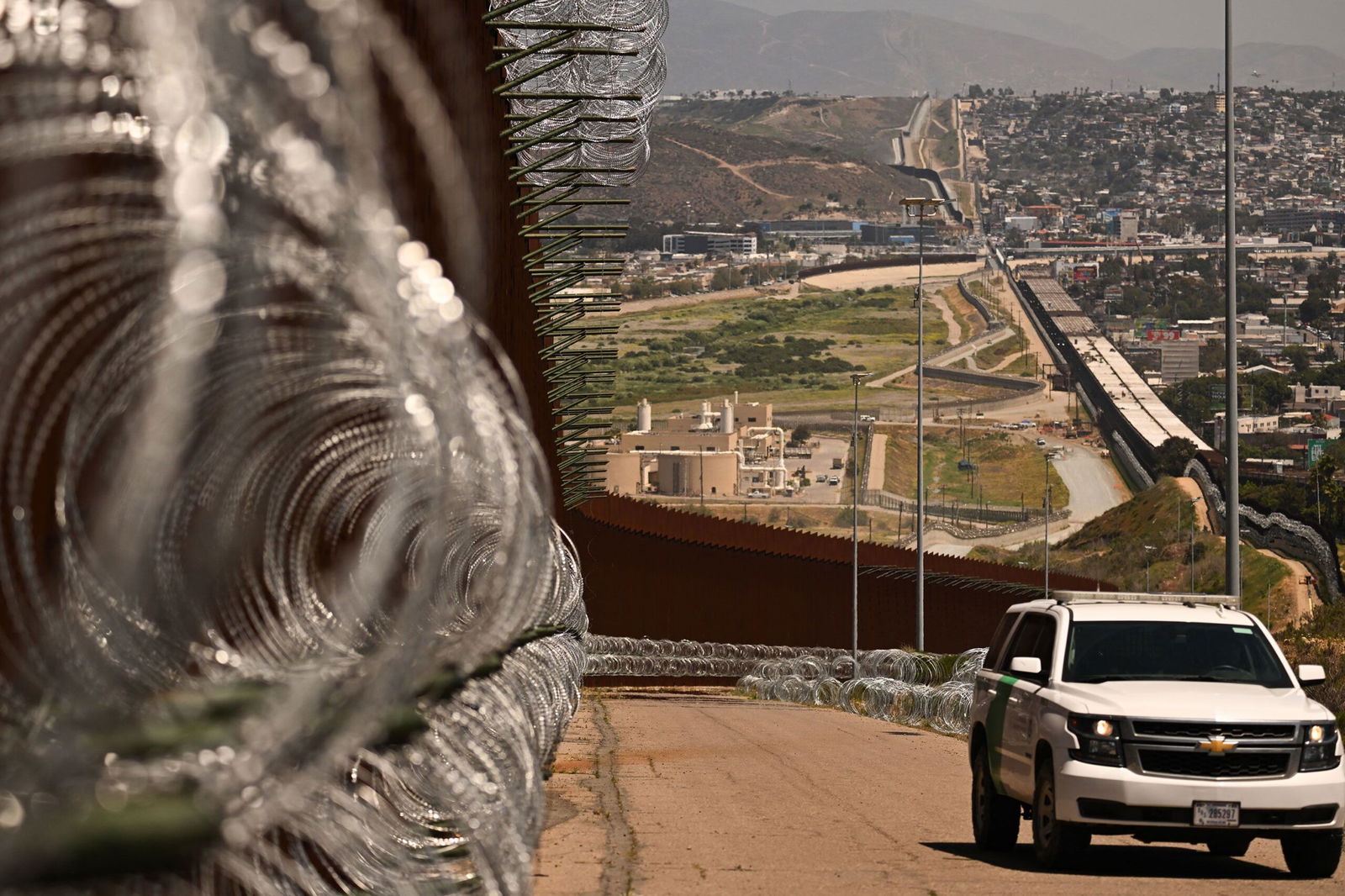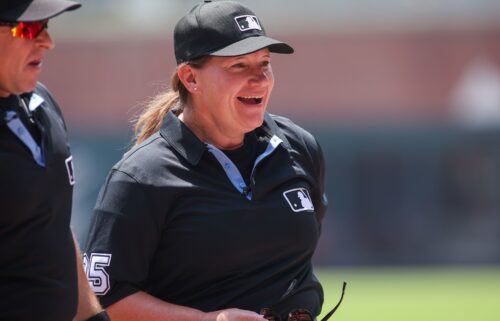Exclusive: Federal law enforcement to begin interviewing unaccompanied migrant children in government custody

A US Customs and Border Protection (CBP) Border Patrol vehicle drives past recently installed concertina wire along the US-Mexico border between San Diego and Tijuana in San Diego
By Priscilla Alvarez, CNN
(CNN) — The Trump administration notified shelter providers who care for unaccompanied migrant children this week that federal law enforcement agents will begin conducting in-person interviews of kids at shelters around the country, according to an internal notification obtained by CNN.
The notification, which has not been previously reported, marks an escalation in the administration’s focus on migrant children who arrived unaccompanied at the southern border.
In recent months, the Trump administration has targeted legal services for migrant kids in custody, made it more difficult for parents and guardians to retrieve their children from government custody, and directed federal agents to ask migrant teens whether they want to voluntarily depart the country.
While the administration says the interviews will be part of an ongoing effort to identify and root out potential criminal activity, immigrant and child advocates say the notification raises significant red flags and threatens to dismantle safeguards meant to protect migrant children.
The internal notification received by providers this week refers to July guidance about an interagency federal team, which includes officials from the Departments of Homeland Security and Health and Human Services, that has been set up to identify, investigate and prosecute criminal activities relating to unaccompanied kids.
But the notification is short on details, like how many children will be interviewed, for what purpose, and whether they will be able to have an attorney present. That’s sparked concerns among immigrant advocates and experts who are now scrambling for answers ahead of the expected interviews.
“It might cause harm (rather) than mitigate harm,” said Jennifer Podkul, chief of global advocacy for Kids in Need of Defense, a group that works with unaccompanied migrant minors. Podkul told CNN that she, along with other advocates and attorneys, already flag cases to federal law enforcement when concerns arise about trafficking or other criminal activities.
“We’re worried about what the kids understand or not,” Podkul said, referring to the blanket approach to interviews. For example, some of the children who may be questioned might include those placed into government custody after recent interior enforcement actions resulted in their parent or guardian being detained.
What to do with migrant children
President Donald Trump has repeatedly criticized the Biden administration over its handling of migrant children and claimed (often without evidence) that many of those kids are in danger. That has served as the premise for the administration to launch an aggressive effort to pursue investigations of any potential criminal activity.
Trump officials argue that hundreds of thousands of children went unaccounted for after being released into the US under former President Joe Biden. They’ve also expressed skepticism over the federal program designed to care for migrant children until they are placed with sponsors, who are generally parents or guardians already living in the United States.
Former Biden officials refute that a large number of children are missing.
Migrant children who arrive in the US alone are placed into the care of a federal agency within HHS known as the Office of Refugee Resettlement, which operates shelters nationwide to house kids until they can be released to a parent or guardian sponsor already residing in the United States.
Sponsors are vetted prior to a child being released to their care. Trump administration officials argue, however, that sponsors weren’t properly vetted amid the influx of minor arrivals.
Processes have been in place to assess whether a child who’s in government custody may be in danger or at risk. If necessary, cases are referred to law enforcement, which might include an interview with the child though it would likely happen off campus based on the circumstances.
Currently, there are more than 2,000 children in the custody of ORR, according to federal data.
A war room inside HHS
Earlier this year, the Trump administration set up a makeshift “war room” in the HHS Washington, DC, headquarters to pore over sensitive data to track down migrant children and deploy federal authorities to the homes where children are residing after being released from custody. Immigration and Customs Enforcement is among the agencies involved in effort.
In a statement to CNN, HHS spokesperson Andrew Nixon said, “We are committed to working with our partners to identify criminal activities that threaten unaccompanied alien children to root out both trafficking and fraud.”
The Department of Homeland Security said that HHS has reviewed thousands of reports of unaccompanied children who, they argue, were ignored under the previous administration, generating investigative leads that the department is pursuing.
“As of July 24, 2025, more than 59,000 of the backlogged reports have been analyzed and processed, resulting in more than 4,000 investigative leads, including fraud, human trafficking, and other criminal activity,” said DHS spokesperson Tricia McLaughlin in a statement.
“Unlike the previous administration, President Trump and Secretary Noem take the responsibility to protect children seriously and will continue to work with federal law enforcement to reunite children with their families,” McLaughlin added.
Prioritizing protection of minors
Advocates who work with migrant children maintain that their protection should be the priority, but against the backdrop of the administration’s immigration crackdown, interviews with federal law enforcement could prove harmful without proper precautions.
Since Trump returned to the White House, ICE agents have taken around 500 children into government custody, CNN previously reported, either because their situations were deemed unsafe or because of immigration enforcement actions against sponsors, the majority of whom are the kids’ parents or other family members.
The ORR has also implemented new guidelines that the agency describes as part of a broader effort to strengthen vetting of sponsors, who are usually family members of children. The guidelines require that staff meet with them in person before placing the kids, according to an email sent to staff and obtained by CNN.
But it also notes that federal law enforcement agencies “may be present to meet their own mission objectives, which may include interviewing sponsors,” the email states. The potential involvement of federal enforcement agencies could exacerbate the already present chilling effect among immigrant families, many of whom are undocumented and who have children in custody, experts say.
The-CNN-Wire
™ & © 2025 Cable News Network, Inc., a Warner Bros. Discovery Company. All rights reserved.



